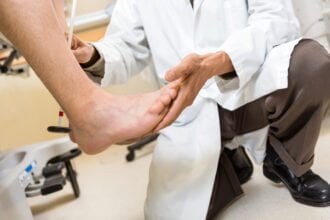Workplace accidents can cause serious injuries, which people can take a long time to heal from. The National Safety Council reports that there were 4.53 million workplace accidents in 2022 alone.
There are a lot of things that you can do if you need to recover from a workplace injury. One of the most important things that you should try to do is get more rest, because your body can’t heal from injuries as easily if you keep overexerting yourself.
You will also need proper medical attention and to make sure that your employer can help provide the accommodations that you need. This will help you recover from your workplace injury more quickly, which is important if you have suffered a serious injury.
Steps You Should Take After a Workplace Injury
Workplace injuries can be both physically and emotionally overwhelming, and navigating the legal and healthcare systems can add to the stress. Whether you’ve been injured due to an accident, repetitive strain, or exposure to hazardous materials, it’s important to understand your rights as an employee. Knowing what protections and compensations are available can help you focus on your recovery without unnecessary financial burden.
Report the Injury Immediately
One of the most important steps after a workplace injury is to report it to your employer as soon as possible. Many countries and states have strict timelines for reporting injuries, and missing these deadlines could jeopardize your right to compensation. Even if the injury seems minor at first, it’s best to notify your supervisor and document the event. This is crucial because some injuries, like strains or repetitive motion injuries, might worsen over time.
When reporting the injury, an experienced workers compensation attorney in Pittsburgh suggests providing clear details about what happened, the type of injury sustained, and any immediate symptoms you experienced. This will establish a record that may be essential if you need to file a workers’ compensation claim later on.
Seek Medical Attention Promptly
After reporting the injury, it’s critical to seek medical attention. In many cases, your employer will direct you to a healthcare provider that is part of their workers’ compensation program. However, you also have the right to request a second opinion or seek additional medical advice, especially if you feel your condition is not improving.
Your medical records will play a key role in your workers’ compensation claim, so be sure to follow your healthcare provider’s advice and attend all scheduled appointments. Failing to seek timely medical care could weaken your case if you later seek compensation for ongoing issues.
Understanding Workers’ Compensation
Workers’ compensation is a form of insurance that provides financial and medical benefits to employees who are injured on the job. Most employers are required to carry workers’ compensation insurance, which covers lost wages, medical expenses, and rehabilitation costs for employees who suffer workplace injuries.
In exchange for workers’ compensation benefits, employees typically forfeit the right to sue their employer for negligence. However, there are exceptions, such as in cases of gross negligence or if a third party (e.g., an equipment manufacturer) was responsible for the injury.
Workers’ compensation also covers different types of injuries, from immediate accidents like falls to long-term conditions like carpal tunnel syndrome or illnesses related to toxic exposure. It’s important to understand that workers’ compensation is a no-fault system, meaning you do not have to prove your employer was at fault to receive benefits.
Filing a Workers’ Compensation Claim
To receive workers’ compensation benefits, you will need to file a claim through your employer’s workers’ compensation insurance provider. This process typically involves submitting medical records, a description of the injury, and documentation from your employer regarding the incident.
If your claim is approved, you will receive compensation for lost wages, medical expenses, and any necessary rehabilitation services. If your claim is denied, you have the right to appeal the decision. In such cases, working with an attorney experienced in workers’ compensation law can be beneficial.
Know Your Rights if Your Claim is Denied
Unfortunately, workers’ compensation claims are sometimes denied. Common reasons for denial include missed deadlines, disputes over whether the injury was work-related, or claims of insufficient evidence. If your claim is denied, you have the right to appeal the decision.
The appeals process varies by jurisdiction but often involves a hearing before a workers’ compensation board or commission. During the appeal, you can present evidence to support your claim, such as medical records or witness statements. It’s advisable to consult with an attorney who specializes in workers’ compensation law to navigate this process and maximize your chances of a successful outcome.
Returning to Work After an Injury
Once you’ve recovered enough to return to work, your employer is required to accommodate any lingering medical restrictions. This may mean adjusting your duties or providing specialized equipment to reduce the risk of further injury. If your injury leaves you permanently disabled, you may be eligible for ongoing benefits or retraining for a different job.
If you’re unable to return to your previous role, you might qualify for vocational rehabilitation services. These programs provide training and support to help injured workers transition into new roles or industries that accommodate their physical limitations.
When to Consider Legal Action
While workers’ compensation covers most workplace injuries, there are situations where you might need to pursue legal action beyond the workers’ comp system. For example, if a third party (such as a contractor or equipment manufacturer) was responsible for your injury, you may be able to file a personal injury lawsuit.
Additionally, if your employer retaliates against you for filing a workers’ compensation claim by demoting, firing, or harassing you, legal action may be necessary. Workers are protected by law from retaliation, and if your employer violates these protections, you can take legal steps to hold them accountable.
Final Thoughts
Experiencing a workplace injury is challenging, but understanding your rights can help you navigate the process with confidence. Report your injury promptly, seek medical care, and follow the necessary steps to file a workers’ compensation claim. If you encounter challenges or denials, remember that you have the right to appeal and seek legal counsel when necessary. Your health and well-being should always come first, and knowing your rights is the first step in ensuring you receive the support and compensation you deserve.










